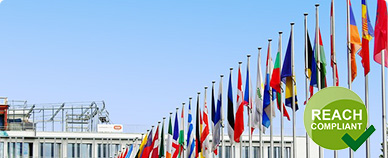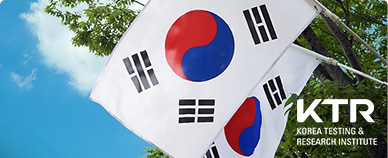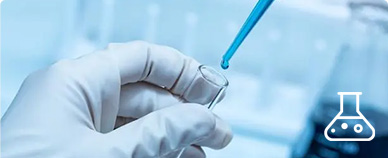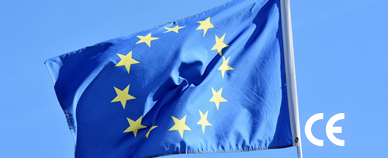Eu PPP pesticide registration
Legal overview
EU PPP pesticide registration generally refers to the registration of plant protection products in the EU, the EU pesticide Regulation (EC) No 1107/2009 (hereinafter referred to as the EU PPP regulation) is currently the most important regulation of pesticide management at the EU level. Its regulatory scope includes pesticide active substances, pesticide preparations, safety agents, synergists, adjuvants (such as barrel mixing additives) and so on.
After the applicant has completed the registration of the EU plant protection agent in accordance with the EU PPP regulation, it can be normally produced, transported and sold in the EU market.
Policy basis:
· Framework for the Sustainable Use of pesticides (Directive 2009/128/EC)
· Regulation (EC) No 1107/2009 on Plant Protection Products (PPP)
· Requirements for Registration of Active Substances in Plant Protection Products (Regulation (EU) 283/2013)
· Data requirements for the Registration of plant protection preparations (Commission Regulation (EU) 284/2013)
· MRL Regulation 396/2005
· Classification, labelling and Packaging of active Ingredients and Mixtures (CLP Regulation 1272/2008)
· Guidelines issued by each Member State
Registration scope
· Active Drug registration
(1) As an active substance applying for registration for the first time, the applicant first determines the evaluation Member State (RMS) to submit the dossier;
(2) The RMS shall carry out the evaluation and issue a draft evaluation report for transmission to EFSA, the European Commission and other Member States of the European Union, and EFSA shall organize a public evaluation of the draft evaluation;
(3) The results of the assessment may be adopted by consensus of all member States.
· Registration of preparations
(1) When applying for registration of a pharmaceutical product, the original drug used in the product must be approved by the European Union, and the applicant shall submit a dossier to the assessment Member State (RMS);
(2) The Evaluation Member (RMS) will send the dossier, the evaluation draft and the evaluation decision to all other Member States in the same region for review;
(3) Once the product has been authorized by a Member State, it can enter the market of other Member States in the same region by applying for regional mutual recognition.
Technical Equivalence assessment (Technical Equivalence) has a short cycle and low cost, and is the fastest registration method for pesticide companies to enter the EU market.
Registration body
Pesticide manufacturers inside and outside the EU
Product authorization
Authorisation of pharmaceutical products is at the Member State level, and product marketing requires authorisation in all target countries.
In order to reduce the duplication of evaluation work and shorten the time for products to be placed on the EU market, the EU PPP regulation introduces a regional evaluation system and adopts a regional evaluation system for product registration. According to the relevant provisions of the regional assessment, the EU region is divided into three regions according to the agricultural climate conditions, North, central and south, and the regional unified assessment of the core dossier is implemented. In addition to the core dossier, the relevant Member State may have its own additional data requirements (such as efficacy, residues, environmental regression, etc.), and additional data related to national agricultural environmental conditions are included in the Member State dossier and are reviewed individually by each member State. For pesticide products applied that are not affected by agro-climatic conditions, such as those for indoor use (postharvest treatment, greenhouses, warehouses) and seed treatment, the whole of the EU is assessed as a region when the formulation is registered.
Service capability
Zhongbang has successfully helped enterprises complete nearly 200 EU TE applications, involving more than 100 products. After more than 10 years of compliance experience, the team has a very rich and mature official channel resources, and has submitted applications in more than a dozen countries in the EU and successfully passed.
The team engaged in pesticide risk assessment research earlier in China; Master pesticide risk assessment techniques in Europe, America, China and other countries; Help enterprises to complete the regulatory requirements of the pesticide registration risk assessment; Carry out risk assessment at the trial stage to help enterprises reduce unnecessary tests and arrange high-level tests in a timely manner.
Services we provide
• New Active Substance registration
• EU Equivalence assessment of active drugs
• Application for Reassessment of Active substances
• Pesticide product Authorization
Zhongbang is one of the earliest institutions in China to engage in compliance consulting services. It has a senior expert team composed of PhDs, Masters, and Bachelor's degrees, and has established branches in the UK, the United States, South Korea, Beijing, Shanghai, Suzhou, Fuzhou, Shenzhen, and other places, forming a global service network layout.
-
Strong technical strength:
A strong team composed of mid to senior technical personnel with professional backgrounds in chemistry, food nutrition and health, medicine, biology, toxicology, environment, and other fields
-
International service level:
A business elite team with multiple languages including English, Japanese, German, and Chinese, efficiently serving international customers
-
Rich compliance experience:
With years of experience in global product and regulatory research in multiple fields, we are able to provide comprehensive and high-level compliance consulting support to various customers
-
Localized service capabilities:
Having multiple branch offices in the UK, USA, South Korea, Beijing, Shanghai, Suzhou, Fuzhou, Shenzhen, etc., we can provide you with services nearby
Service Hotline :400-115-9001
Zhongbang Consulting (Shandong Zhongbang North Management Consulting Co., Ltd.) focuses on product registration and compliance consulting services. With its professional technology, diverse resources, and global network, we are committed to providing regulatory consulting and environmental regulation response services for pharmaceutical, chemical, consumer goods production enterprises, and large multinational corporations. To solve the environmental, health and safety laws and regulations, product quality standards, and other issues faced by enterprises in production, sales, and global trade processes.
Accumulated Customers
18,000+
Distributed in 35 countries and regions
14year
Industry experience
260+
Senior expert team
15+
Subsidiaries
300+
Collaboration Cases
Brand Cases
The choices and trust of over 18000 customers are the driving force for Zhongbang to continuously improve its services. We are willing to grow together with these excellent enterprises
Service Hotline:400-115-9001






































































 Consultation
Consultation
 400-115-9001
400-115-9001